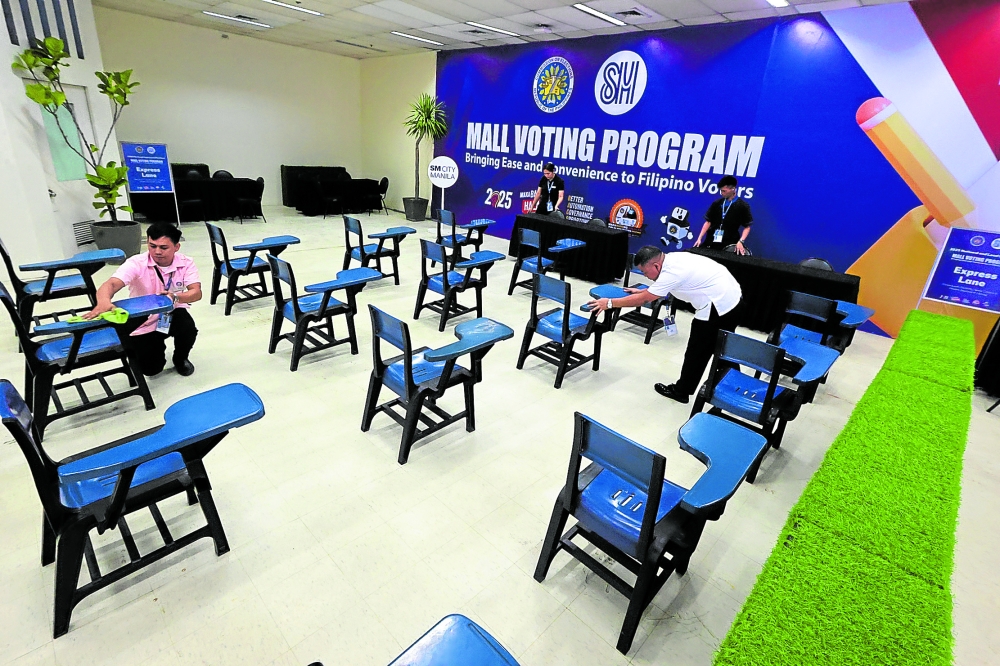With 156 party list groups, voting wisely far from easy

Remedios (not her real name) has not voted for any party list group since 1998, when Filipinos began voting for party list representatives in Congress.
“I was too overwhelmed because there were just too many party lists to choose from. I did not have that much time to check on their platforms one by one. Rather than getting myself worked up, I just did not vote for any of them,” the 62-year-old housewife from Pasay City said.
When voting was still manual, she would simply write “none” on the space provided for party list. But when elections became automated in 2010, she became “more confused” because there were more than a hundred groups to choose from on the ballot.
During the 2022 elections, she recalled getting a headache just by looking at the entire back page of the ballot showing all 178 candidates for the party list race.
Do your research
“There are many party lists that claim to represent me. There’s one for women, for mothers, and even those who are Waray like me. But I haven’t seen them really helping these groups that they represent. I don’t feel that they have helped me. Rather, I think they are the only ones who will benefit from my vote,” said Remedios, who came to Manila from Leyte in the 1970s to look for better opportunities despite not finishing high school.
Remedios was among the 34 percent of voters—or more than 19 million—who either left the party list section blank or whose votes were deemed invalid in the 2022 elections.
Millions of Filipino voters may still be undecided on which party list to vote for on Monday. But for election watchdog Kontra Daya, they still have enough time to do their research.
“The key to voting wisely is to get as much information as possible on the party list groups … There’s no compromise for research,” Kontra Daya coconvenor Danilo Arao told the Inquirer.
“Google is your friend,” advised Arao, professor at the College of Media and Communication of the University of the Philippines Diliman. “But in the likely event that you don’t have an internet connection, you can just simply ask people around you. Do not just rely on the familiar faces you see on posters, tarpaulins and advertisements.”
He said choosing a party list is a combination of determining which group best represents them in the House of Representatives and those with a good track record.
‘Hijacking’ the race
Based on the Kontra Daya study, more than half of the party list groups seeking seats in the 2025 midterm elections do not represent the marginalized and underrepresented.
The group flagged 86, or 55 percent, of the 156 groups for “hijacking” the race: 40 are tied to a political dynasty, 25 to big business and 18 to the police and military. It also identified 11 with dubious advocacy, seven whose nominees have corruption cases, and nine with insufficient information.
Based on the latest Social Weather Stations survey, 4Ps Party-list, which advocates for poverty alleviation, is leading the race despite being hounded by controversies.
Its first nominee is House Minority Leader Marcelino Libanan, who was implicated in the pork barrel scam though the case against him was dismissed. Its second nominee, Jonathan Clement Abalos II, is a nephew of former interior secretary and now senatorial candidate Benhur Abalos.
4Ps’ third nominee is Edward Cigres, director of Pai Li Holdings Inc., which House quad comm member and Quezon Rep. David Suarez earlier linked to former presidential economic adviser Michael Yang.
The Anti-Crime and Terrorism Community Involvement and Support (ACT-CIS) party list of the Tulfo political clan dominated the 2022 elections with over 2 million votes. It was the only group to secure the maximum three seats.
ACT-CIS is currently represented by popular broadcaster and former Social Welfare Secretary Erwin Tulfo; Jocelyn Tulfo, wife of Sen. Raffy Tulfo; and Edvic Yap, brother of Benguet Rep. Eric Yap and Quezon City Councilor Egay Yap. Representative Yap, Jocelyn Tulfo, and Jeffrey Soriano are ACT-CIS’s top nominees for the midterm polls.
Two other Tulfos are running under a new party list group: former Tourism Secretary Wanda Tulfo-Teo and her son Robert Wren Tulfo-Teo are nominees of Turismo Isulong Mo.
Meanwhile, Quezon City Rep. Ralph Tulfo Jr., son of Senator Tulfo and Representative Jocelyn, will seek reelection. Erwin and another brother, Ben, are running for senator.
If they all win, there will be seven Tulfos in Congress: three in the Senate and four in the House.
SC ruling
According to Arao, the floodgates opened in 2013 when the Supreme Court reversed itself and ruled that party list groups “do not need to organize along sectoral lines and do not need to represent any marginalized and underrepresented sector.”
The ruling cited the intent of Republic Act No. 7941, or the Party-List System Act enacted in 1995, to make the party list race a system of proportional representation open to various groups and parties.
The law, however, has long been criticized for ending up as another vehicle for traditional politicians, or “trapos,” to advance personal interests.
Arao cited how these party list groups, given their vast campaign war chests, resorted to money politics and personality politics—employing celebrities for better name recall, and even vote-buying guised as financial aids—to ensure winning a seat.
“After all, the party list race is a popularity contest,” he noted.
Lawmakers have blocked measures to amend RA 7941 by introducing an antipolitical dynasty bill or a new law altogether. Arao described them as “garapal” (brazenly corrupt).
Restore law’s intent
Kontra Daya, among other groups, has called for the restoration of RA 7941’s original intent to ensure representation for the marginalized and underrepresented sectors.
Absent a legislation banning such groups from hijacking the party list race, Arao urged the Commission on Elections (Comelec) to flex its quasi-judicial functions by giving a “more cursory reading or interpretation of the law” and to “work around the current system.”
“The Comelec should try its best to have an interpretation of the law that will benefit the marginalized regardless of what the rich and the powerful will think,” he said.
“We cannot have a Comelec that will pretend to be neutral or will try to be neutral in dire situations like this. They should interpret the law within the framework of how it will benefit the marginalized and the underrepresented,” Arao added.
Allowing the current party list system to persist without reforms would only result in the marginalized being further marginalized while rich and powerful politicians further consolidate their wealth, power and influence, he said.
“We do not want a party list system that will be a training ground for the son, daughter or relatives of a political clan’s patriarch or matriarch. The party list system is supposed to provide a mechanism for the participation of the poor and the underrepresented in Congress, which is dominated already by the rich and powerful,” he added.

















